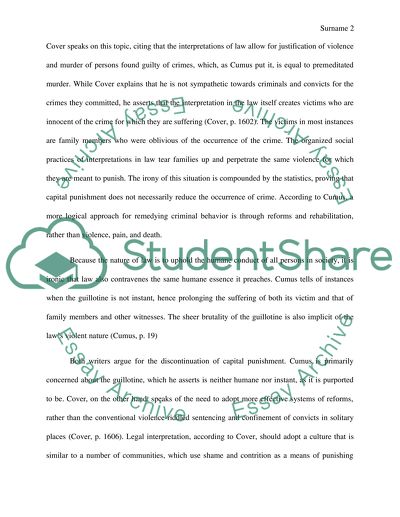Violance and the World by Robert Cover and Reflections on the Essay. Retrieved from https://studentshare.org/philosophy/1445380-put-violance-and-the-world-by-cover-and-reflection
Violance and the World by Robert Cover and Reflections on the Essay. https://studentshare.org/philosophy/1445380-put-violance-and-the-world-by-cover-and-reflection.


